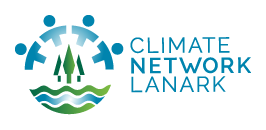“We live because everything else does. ”
They are a small-scale coffee roaster. Their focus is on quality and attention to detail. They work directly with their customers to select the coffee beans and roasting profile to create their unique flavour template.
Meet the Brains Behind Fluid Coffee
“We started Fluid Solar Roasted Coffee in 2015. Lorraine and I wanted a simpler, closer to home lifestyle with a better work/life balance.
Both of us are from high-technology and manufacturing backgrounds with some of our business time spent in small hydro power development in rural Canada and the developing world. These skills lead to our living off-the-electrical grid and being close to nature.
We had the pleasure of helping convert a coffee plantation transition from diesel generators to hydroelectric power. This gave us the idea of moving into the coffee roasting business.”
Their Sustainability Practices
They live and work generating all of their electricity and heat from renewable resources. For 30 years, they have lived unconnected to the electricity grid. They use solar energy for heating and hot water.
The coffee roastery is 100% powered by solar and wind electricity generated on-site.
They deliver to our local customers using a 100% electric vehicle that is charged from solar electricity they generate on-site.
They use no water or PLASTIC in our coffee roastery, generate near-zero garbage, recycle everything, and compost organic waste such as coffee chaff and grounds.
Their smoke discharge and resulting carbon emissions are a fraction of typical gas-heated roasters due to ther electric heating system and low operating temperatures.
All of their coffees are packaged in 100% biodegradable (compostable) materials.
They are a socially responsible coffee purchaser and support and purchase Fair Trade, Organic, and Rain Forest Alliance-certified coffees. They also purchase from small-lot farms that are not part of these programs.
The coffee beans are decaffeinated using the 100% chemical-free Swiss Water Process (SWP), which also happens to be a Canadian technology!
-
They purchase their coffee beans from small-lot farmers who care deeply about their plants, their land, and the quality of the coffee they produce. They also source their coffees from organic, Rainforest Alliance certified, and Women’s Co-operative farms, allowing them to offer the very best coffees from around the world. (One of their farmers only produces a few dozen bags of coffee per year).
-
They live and work off the electrical grid, generating electricity and heat directly from renewable resources. 100% of their water use is recycled back to nature, and their garbage waste stream motto is simple:
“If we can’t recycle or reuse it, we don’t use it”.
All of their packaging (and today's tasting cups) are fully biodegradable.
It takes eleven minutes of sunlight falling on their solar-electric panels to generate the electricity required to roast 8 pounds of their coffee. They are a hand-roaster of small-batches of carefully selected coffee beans.
-
Some of their coffees come from farmers who produce only a few bags of coffee per year. Their partner, "Willy," lives in the highlands of Tanzania and grows what is known as a peaberry coffee. Willy is 79 years old and produces a few hundred pounds of coffee per year.
One coffee they are particularly proud of is from a Colombian Women's Co-operative that grows their "Twisted Sisters" beans. These women formed a co-op that now has 350 all female members, that own the land, farm, harvest, process and ship their coffees to Fluid Coffee.
-
Coffee growing is a massive business operation; it is the second most traded commodity after oil. Coffee farming is divided in two broad producer groups. Conventional coffees tend to be of lower quality, strip rain forests to increase agricultural area, and use intensive amounts of chemical fertilizers and pesticides. Fluid Coffee does not purchase from these producers.
Sustainable farming producers are smaller, local area producers that form co-operatives or loose community business groups. Some producers opt to be “certified” through Fair Trade, Organic, Rainforest Alliance, or UTZ “Better Farming” programs.
Each of these certifications programs offers access to training, monies, infrastructure, and other assistance to ensure improvement in lifestyle, family economics, local education, and improved farming practices. These are the farms that Fluid Coffee uses for its regional and blended beans.
The one problem with these programs is that they cost money or are not available to all farmers, particularly small-lot farms of under 5 acres. These are also the farmers that Fluid Coffee favours for its limited quantity single-origin coffee beans.
Some of these smaller producers choose not to certify to any organization, for economic or control reasons. The women’s only co-operative, Las Marias of Colombia that produces the Twisted Sisters coffee, does not belong to a Fair Trade organization as they set their own guidelines for financing, crop pricing, infrastructure improvement, and business and social practices.
Many small-lot farmers are now part of a ‘farm-gate” program, where coffee buyers opt to pay a premium (generally 1.5 times the going Fair Trade rate). In exchange for this premium payment, producers agree to use non-certified, organic growing practices, shade planting (no rain forest slashing) and ensure the coffee grown are of the highest quality.
Drone Footage of Their House, Coffee Roastery, and Wind Turbine
Future Goals
“We would like to explore growing foods using year-round hydroponic techniques; although this is still in the dream-works department!”

Smoke and Coffee Should't mix! - A Traditional Drum-Style Roaster

Lorraine at the Controls of our 8 Pound Sivetz Roaster

Lorraine at the controls of our Sivetz Fluid Bed Coffee Roaster


Lorraine inspecting coffee plants at the farm and beneficios on the Panama/Costa Rica border area of Volcan.

The Kemp's Off-The-Grid House and a View of the Fluid Coffee Roastery

The Fluid Gang from Bill, Lorraine, Jamie, Kelsey and Nancy

A Vienna Roast Dancing in the Roaster






